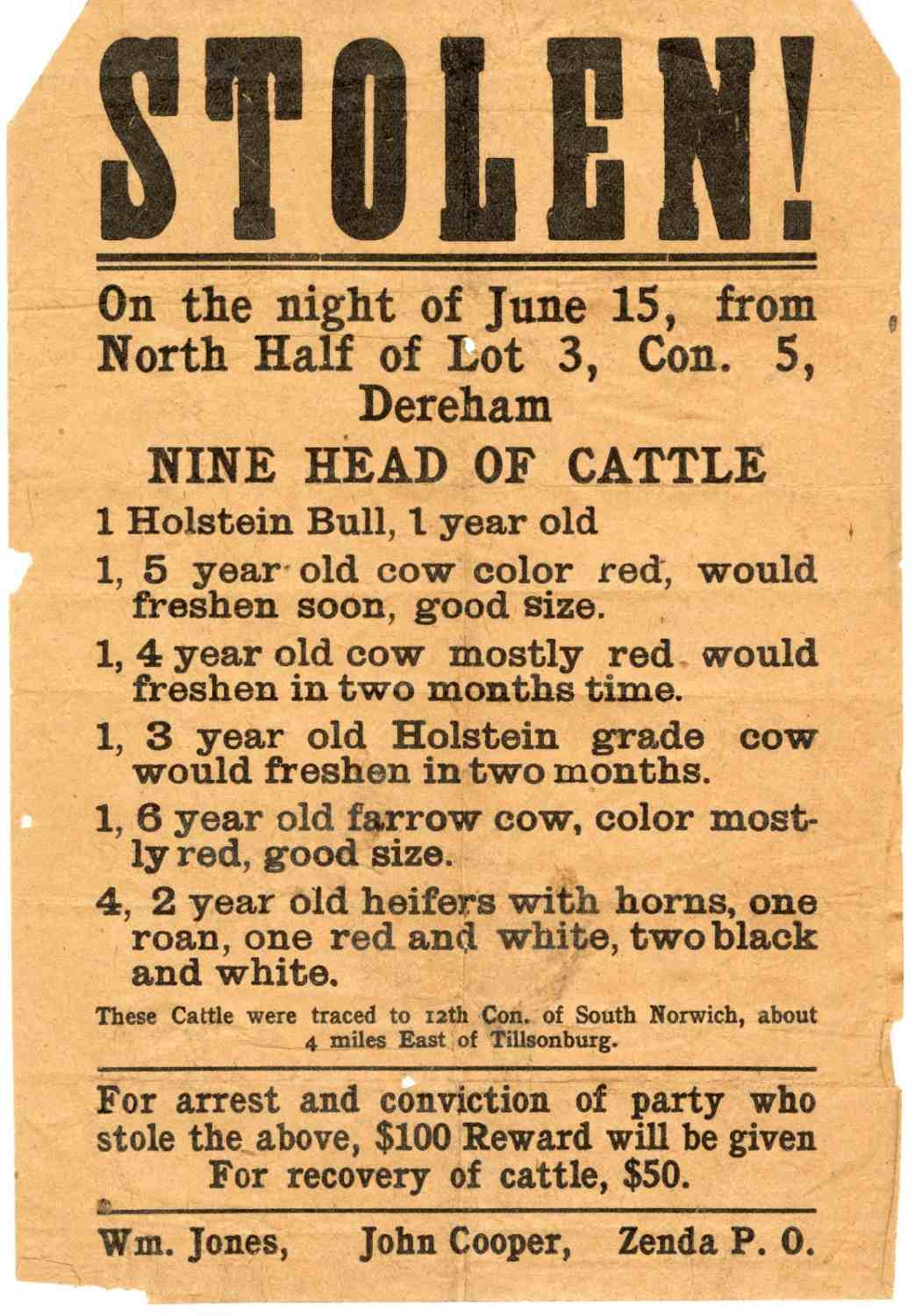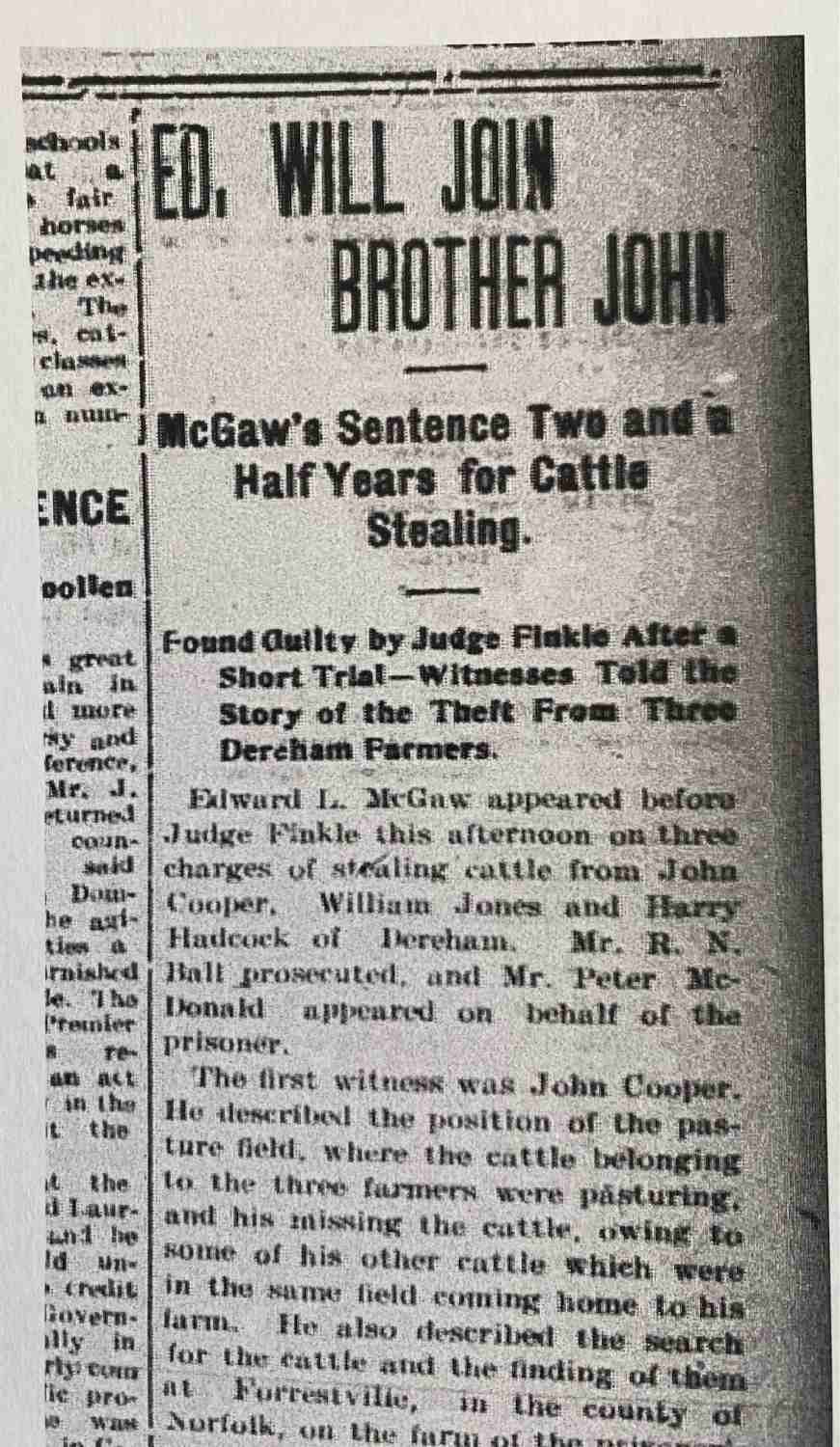The Great Cattle Heist of 1908
The Great Cattle Heist of 1908
By Liz Dommasch, Archivist
On the evening of June 15, 1908, nine heads of cattle belonging to William Jones, John Cooper, and Harry Hadcock, all residing near Zenda, Dereham Township, were stolen from pasture fields and believed to have fallen into the hands of a gang of thieves. The southern part of the county was immediately scoured for the missing cattle and for information that would lead to the arrest of the culprits. The owners also offered a reward of $100 (which would be over $2500 CAD today) for the arrest and conviction of the guilty parties and $50 (approx. $1500 today) for the recovery of the cattle.

The cattle were originally traced to the 12th Concession of South Norwich, about four miles east of Tillsonburg and then finally discovered on the farm of Mrs. Mary Jane McGaw in Forrestville, Norfolk County . Her two sons, Edward, age 20, and John, age 38, were soon determined to be the culprits and were charged with the crime of cattle-stealing. John was arrested in Dereham Township and sent to the Oxford County Gaol (jail), while Edward was arrested near the family farm in Norfolk County and held at the Simcoe Jail, while awaiting transfer to Woodstock, Ontario where the brothers would be tried together. However, before he could appear at his preliminary hearing, Edward climbed over the jail wall using a plank, and escaped under “sensational circumstances”.

In August 1908, John McGraw was tried before Judge Finkle at the Oxford County Court House. Although he protested his innocence and his defense tried to claim “he was hardly accountable for his actions”, he was found guilty and sentenced to three years in the Kingston Penitentiary.
A month later, his brother was captured in Ransomville, New York, after he wrote his former employer in Dereham Township requesting he forward his wages to him. He was also arraigned before Judge Finkle in October, 1908 where he pleaded not guilty. Following testimony from John Cooper, William Jones and Harry Hadcock, as well as his former employer, George Harrison; Edward was quickly found guilty of all charges. Although his council made a plea for leniency on account of his age, as well as his previous good character, the judge sentenced him to two years and six months in the penitentiary and hard labour.
Little is known about both men following their release from prison. It appears John settled in Elgin County where he worked as a farmer until his death in 1929. His brother Edward, appears to have emigrated to the United States in 1914, though later he is noted as having settled in Manitoba, where he passed away in 1935.
Although horse thieving was a much more common crime in Oxford County in the 1800s and early 1900s; cattle and even sheep theft was also an issue. In 1884, John Rooney was found guilty of stealing cattle in East Zorra Township and was found guilty at the London Assizes; while William Wise spent twenty-four days in the County Gaol for sheep stealing in 1878. Likewise, injuring and poisoning livestock was also a chargeable offense in the county. In 1883, James Leonard was accused by Samuel Gable and Lemuel Cassidy, farmers in Bright, with poisoning cattle on property leased to him. The case was settled in court with Leonard paying all costs and the price of the cattle.
Today, cattle theft is still considered an indictable offense, under the Canadian Criminal Code, with a maximum sentence of ten years imprisonment.
